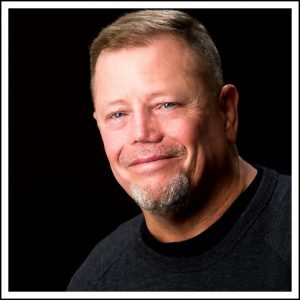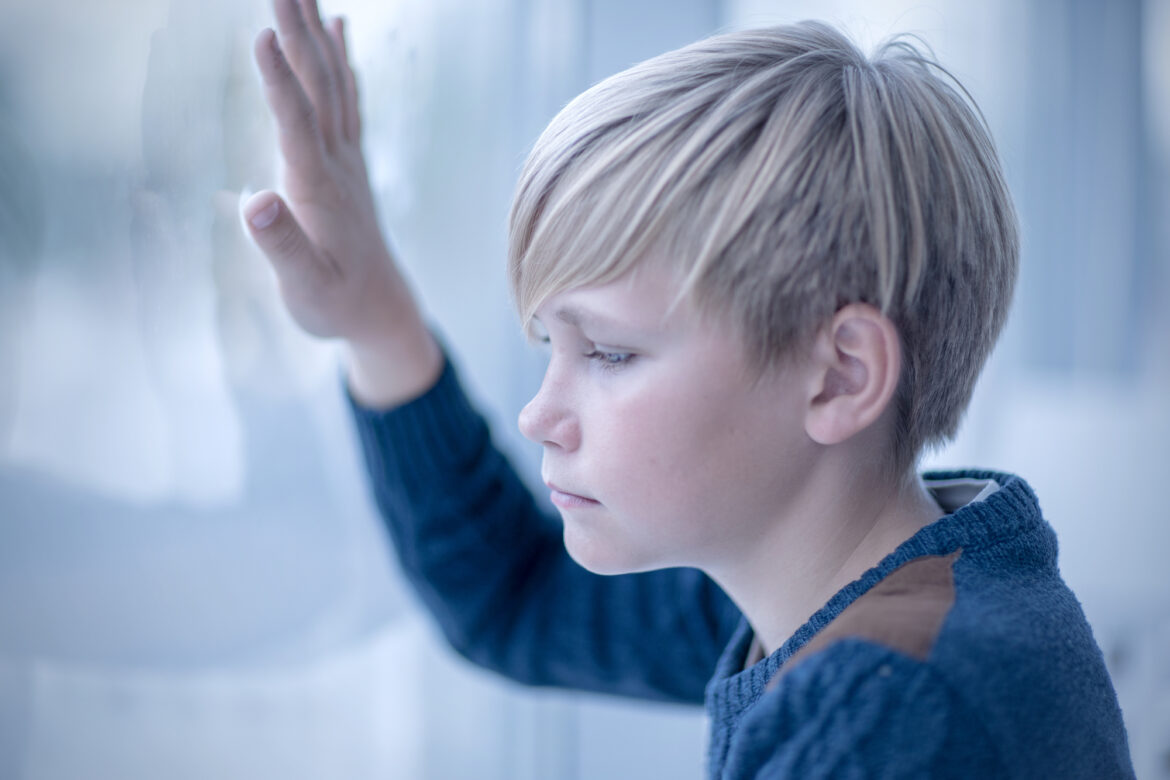I Am More Than My Fathers
By David Sanchez Brown
I was not the dream son my adoptive parents envisioned I’d be. I was a clumsy, overweight kid with Coke-bottle thick glasses and learning disabilities who couldn’t seem to do anything right—couldn’t even throw a ball. Father-son relationships can be challenging enough in biological families, but I learned early that they’re even more complex for an adopted son.
I was adopted in 1956, but my adoption was a lifelong event. It was a closed adoption, meaning that all genetic connections were severed when a new birth certificate was issued. This separation from my birthmother was the first trauma I experienced, and it influenced every aspect of my life. It diminished my self-esteem, disrupted my identity, and left me unable to form secure and satisfactory attachments.
My adoptive parents made a crucial mistake in waiting until I was eight to tell me I was adopted. I have no idea why they waited so long. I had already established a strong bond with my them, and it confused and shattered me. When I said, “You’re not my real mother, then,” my mother’s face contorted. She looked possessed when she came at me and screamed in my face, “How dare you to question my motherhood, you selfish boy.” My father just stood there and let her rage. It took a moment, but the damage was permanent. I never trusted her after that. Not only had I lost my mother at birth, but now I had a mother who didn’t love or like me.
I’d bonded with my dad early on, but after the adoption talk, my relationship with him, too, changed. I had a younger brother, also adopted, and a younger sister—my parent’s biological child—but since I was the oldest son, there was more pressure on me. I was expected to be of blue-ribbon caliber. He forced me to play catch with him and he had no patience. “Pay attention and keep your eye on the ball,” he’d holler. No matter how hard I tried to concentrate, I always dropped the ball. When he and the kids on the block called me Charlie Brown, it stung.
My efforts to understand geometry were equally dismal. Late nights at the kitchen table with my dad doing homework, we were both stressed. He’d throw back another shot of Cutty Sark whiskey, yelling “pay attention” and cuffing my ears. I’d get debilitating stomach aches. I still hold those memories in my body, especially in my hunched shoulders. I felt broken and internalized the shame of not being enough for my dad.
An alcoholic with a violent temper, my dad was as unsafe as my mother was hot and cold emotionally. He would often say that how I turned out would reflect on him; I had to be perfect, and he was an unrelenting perfectionist. He needed me to be an extension of him, but I couldn’t. I was the antithesis of him. Perhaps he felt I would become like him as if by osmosis.
It pained me that I couldn’t be more like my dad, but I couldn’t; I was another dad’s son. The more he pushed me, the more I shut down and retreated into my inner world of remote islands.
I didn’t look or act like anyone else in the family. I stuck out like a sore thumb and I became the family scapegoat. The more withdrawn I grew, the more my father would verbally and physically abuse me, especially after he’d been drinking. I reacted by dissociating, which only accelerated in my mid-teens. Alcohol became a way to numb my feelings, and later I’d rely on prescription drugs like Xanax. I stayed that hurt kid most of my life, and it prevented me from being an adult. Now I know dissociation was a trauma response.
When I finally left home, I was an empty shell—no identity, no personality. I didn’t know how to take care of myself and I drifted. My life up until then had been all about surviving from one day to the next. I believed I only deserved dysfunctional, toxic relationships, including those in work environments. But I never connected my feelings about myself with having been adopted. I thought I was a failure and unworthy of unconditional love.
In September 2006, while I was visiting my mother, she casually handed me my adoption documents. The first page contained the court decree. It stated that David Lee Carroll would now be known as David Raymond Brown. The shock of that news was a gut punch, and I threw up. I joined an adoption registry at adoption.com, but received no response. I didn’t aggressively search for my birth parents, and although DNA testing became available in 2012, I didn’t test. I was afraid to find birth family. I was afraid I wouldn’t be enough and that they, too, would be disappointed in me or might reject me—a secondary rejection.
But then I read Dani Shapiro’s “Inheritance: A Memoir of Genealogy, Paternity, and Love”—in which she discovers after taking a DNA test that her dad wasn’t her biological father and she searches for and finds the man who was. I’d always felt incomplete, so I put aside my fears of rejection and took a risk. I took an AncestryDNA test, but I didn’t consider the emotional impact of what I might find.
On July 27, 2019, while I was on the treadmill at the gym, I got a text from Ancestry DNA. My results were ready to view online. I got dizzy and almost fell; I hit the emergency stop cord and sat down. I had a first cousin match and I messaged her immediately. A couple of minutes later, she responded. There would be many phone calls and trading of pictures before I realized I’d struck gold. I was in a state of shock, and seeing pictures of my bio father I got the whole meaning of genetic mirroring for the first time. I could see myself in him, a genetic connection. But I didn’t know for sure if he was my father. My paternal first cousin put me in touch with someone I’d later learn is my half-sister, who agreed to take a DNA test. And five weeks later, Ancestry confirmed that we shared the same father. I also learned I have two other sisters. It was overwhelming; I had to walk away for a few weeks. I felt like I was coming apart at the seams.
So, who was this man? Who was my bio father, and was I like him? Did I have his traits?
As I came to know more about my paternal family, I discovered a history of addiction and mental health issues. Learning about this medical history gave me insight into my struggles. Knowing about it sooner might have saved me a lot of wear and tear.
I also learned my biological father was a fraternity party boy with a reputation for being a jokester in front of an audience. But he often was the butt of the jokes, which was painful to learn because I, too, had been laughed at when I thought I was the life of the party. My sister gave me a photograph of him wearing fluorescent orange shorts and holding a beach umbrella; I couldn’t accept it. It wasn’t what I wanted to remember and it was an unpleasant reminder of all the embarrassing pictures of me.
I also learned my biological father had been physically abusive toward one of my sisters, which made me physically sick. It hit a nerve because it reminded me of my painful past. I don’t think any of my sisters fully recovered, and I am only now able to live free of the traumatic memories of growing up.
Over the past two years, learning about my origins and my genetic inheritance has helped ground me. It’s been painful finding the truth, but I am no longer that hurt boy. I am the cycle breaker. I’m grateful I didn’t have children. I might have passed down the generational trauma. I couldn’t risk anyone else’s life. Honestly, I was hoping my bio father would be more, and maybe that’s like my adoptive dad wanting me to be more. I think all these desires were unrealistic.
I carry my ancestors inside me. I bear my biological father’s genes and the imprint of my adoptive father’s abuse and disappointment. But I am not either of my fathers. I am my own man.

Severance is not monetized—no subscriptions, no ads, no donations—therefore, all content is generously shared by the writers. If you have the resources and would like to help support the work, you can tip the writer.
On Venmo: @David-Brown-0516
BEFORE YOU GO…
Look on our home page for more articles and essays about NPEs, adoptees, and genetic genealogy.
- Please leave a comment below and share your thoughts.
- Let us know what you want to see in Severance. Send a message to bkjax@icloud.com.
- Tell us your stories. See guidelines.
- If you’re an NPE, adoptee, or donor conceived person; a sibling of someone in one of these groups; or a helping professional (for example, a therapist or genetic genealogist) you’re welcome to join our private Facebook group.
- Like us on Facebook and follow us on Twitter and Instagram @Severancemag.

